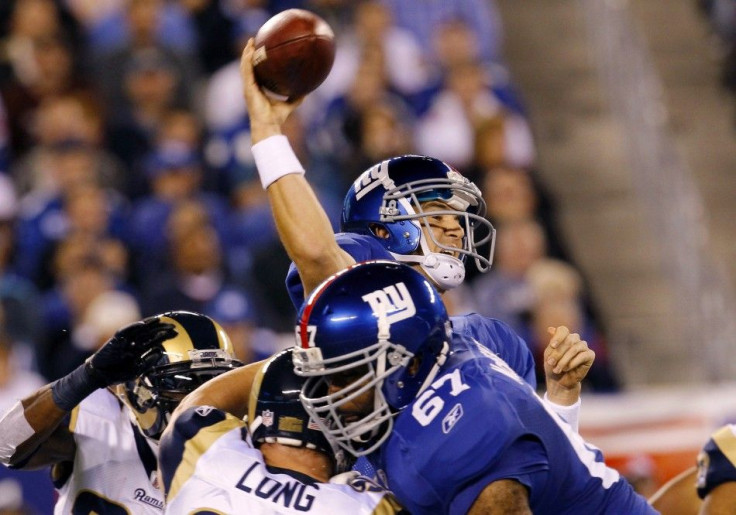Super Bowl 2012: Investors Hope Giants Win

The U.S. stock market has little, if anything, to do with pro football. However, there appears to be an odd relationship between the team that wins the Super Bowl and the subsequent performance of equities in that calendar year.
The “Super Bowl Market Predictor Theory,” as promulgated by Standard & Poor's (among others) posits that if a National Football Conference (NFC) club wins the title, the U.S. Stock market – as represented by the S&P 500 index will show a gain for the year. However, if an American Football Conference (AFC) team wins, shares will fall.
This theory has held up in 35 of the past 45 years (a 78 percent success rate) going back to the very first Super Bowl in 1967.
What complicates this theory somewhat is that some current AFC teams were formerly in the NFC. In 1970, after the National Football League (NFL) merged with the old American Football League (AFL), the two new conferences – NFC and AFC – came into being. Some teams subsequently switched conferences, including the Seattle Seahawks, who actually changed sides twice! In any case, the theory still applies to Super Bowl-winning AFC clubs that were formerly in the NFC.
Another wrinkle in the theory is that it only applies to total return (which includes dividend payments), not simple stock price appreciation, according to S&P.
For example, as Howard Silverblatt, senior index strategist at S&P explained, in 2011, the S&P 500 index gained 2.11 percent on a total return basis, but was basically flat on a purely stock appreciation basis.
Last year, the Green Bay Packers (NFC) defeated the AFC's Pittsburgh Steelers – and the S&P 500 index eked out a 2.1 percent total return for 2011.
In the prior year, 2010, the New Orleans Saints of the NFC beat the Indianapolis Colts of the AFC, leading to a handsome 12.8 percent gain for the S&P 500, as the economy started to recover.
Of course, there have been exceptions. The last time the Giants and Patriots met in the Super Bowl in 2008, the NFC Giants won – but the S&P 500 index plunged 38.5 percent that year, amidst a global financial crisis.
S&P warned that even if the Giants beat the Patriots this Sunday, the theory may fail this year.
“With the national unemployment rate at about 10 percent, things are not looking bright for the U.S. economy so far this year – and, perhaps, it will be another year in which the Super Bowl Predictor Theory fails,” S&P stated.
© Copyright IBTimes 2025. All rights reserved.




















